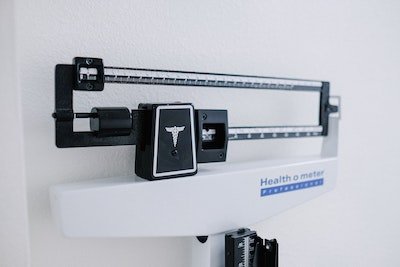What Is Thin Privilege?
Have you gone into a clothing store and not been able to find your size? Have you ever worried about not being able to fit into a booth at a restaurant? Have you ever been told to lose weight as an explanation of every health problem? Have you ever been perceived as lazy because of your body size?
If you answered no to all of these situations, then you have thin privilege. If you are a thin person or have been in a smaller body for most of your life, you may not have even realized that you had this privilege. Like any other privilege, thin privilege is an unearned cultural privilege given to someone simply based on the size of their body. You may feel uncomfortable with the term, but that’s understandable. No one likes their privilege to be called out, but becoming aware of how systematic this privilege is and how each and every one of us reinforces it, is important to grasp.
It wasn’t until I first jumped into Health At Every Size (HAES) and Intuitive Eating that I realized the concept of thin privilege. I have had thin privilege for most of my life. Having thin privilege doesn’t mean I have never had any body-image issues. It doesn’t necessarily mean I feel thin, because most people in diet culture never actually feel thin. Thinness is elusive.
I have struggled with body image issues for years. I never thought I was small enough or fit enough. I look back on pictures now and think “OMG! I was scary small.” In addition to my body image issues, I am also aware that I am more likely to reap certain benefits in this twisted world due to my body size. That is me being aware of my privilege.
I have had several patients and Facebook friends comment on my body size and write me off as a healthcare professional. I have heard comments such as “Why would I listen to you? You’ve never had to go through what I’ve gone through.” Or “Why would I listen to someone skinny about eating whatever you want?” I don’t highlight this for sympathy, but rather to show how much we place value on people’s body sizes, and how that needs to change.
So what do we do to bridge the gap of disparity among body sizes?
We should flip the narrative on how we view health. Often times, doctors and other healthcare professionals can be weight bias and being aware of that is one step closer in weight equality. An example of this was one time I went into a clinic to get covid tested and by the end of my appointment I was told my BMI was teetering on the overweight side. I’m sorry, what? How does me getting tested have anything to do with my weight? Another example is often women in larger bodies are told to lose weight to help their period cramps or they need to lose weight to *blank*, when in reality the underlying issue had nothing to do with their body size.
If you feel healthy in your body, no matter the size, that is all that should matter. If you can get around and do things that you enjoy in life, once again, the number on the scale shouldn’t matter. There are so many aspects to health, but the defining one should not be the size of our bodies.
We need to talk about thin privilege! Why? Because if we are going to work towards reducing weight stigma, we have to examine our own biases and recognize our privilege. Biases around weight and body size contribute to discrimination. Research shows that people in larger bodies suffer the most due to our unconscious bias, especially in healthcare. As a registered dietitian, and part of healthcare, I pledge to take a stand and work to dismantle weight stigma. We must fight for respect for all body shapes and sizes.
Our bodies are amazing! They keep us alive. They get us through the day. They fight off infection, viruses, or disease. They communicate with us. They carry us through decades of life. We have to learn to value all bodies. We all deserve respect and care in this world.
Having these hard conversations is one way to do better. I am still learning and am open to listening and continuing to learn. I invite you to do the same and explore your own privileges.


